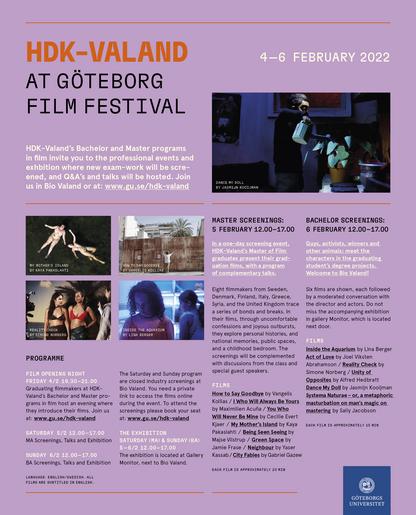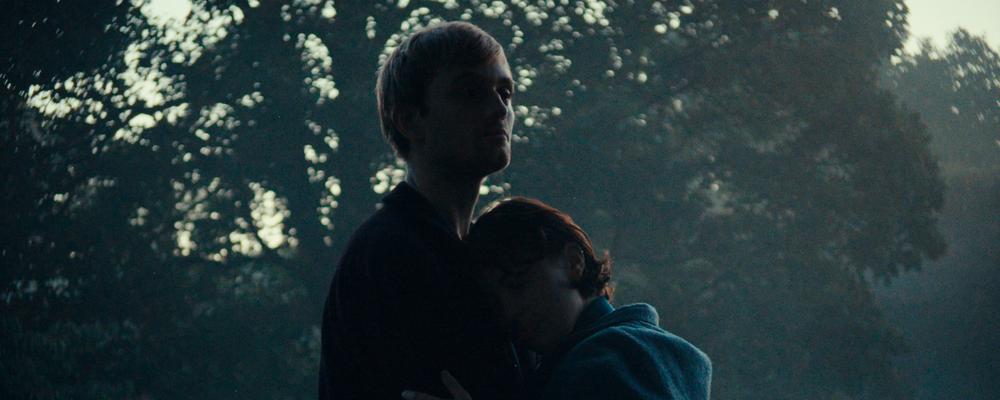
HDK-Valand at the Gothenburg Film Festival: Graduation Screenings
On February 4, 5 and 6 graduating filmmakers at HDK-Valand's Bachelor and Master programs in film host a weekend full of exiting live-streaming events, where graduating filmmakers will screen their brand-new exam-films, host talks, debates and Q&A's.
Invited guests are amongst other filmmakers Ruben Östlund, Mia Engberg, Maja Daniels and scholar Masoud Kamali. Watch all events here live-streaming on this website, or watch on-demand on Vimeo.
The weekend will be kicked off with a streaming event on Friday 4 February, where all fourteen graduating students give a glimpse into their work. Saturday 5 February will revolve around the Master students. On Sunday 6 February the Bachelor students will screen and discuss their films. Won’t you be able to join us for the screenings? All the films and talks will also be available to watch on-demand online!
Saturday and Sunday programs are closed screenings, please sign up for these by sending an email to Mirka.Duijn@gu.se.
Friday, February 4 - Opening night
The live stream starts on at 19:30. The fourteen graduating students from HDK-Valand's film programmes (bachelor and master) will introduce themselves and give a glimpse into their work. Welcome to watch the live-streaming event, via the link below.
See programme for the whole evening in the calendar
Saturday February 5 - film screening master's program
The students from the master's program screen their film, and host debates, talks and Q&A’s with invited guests Ruben Östlund, Mia Engberg and Masoud Kamali. This event will be English spoken.
Watch the live-streaming event on Vimeo.The Saturday and Sunday programs are closed screenings. To access the live-streaming events during the weekend, please sign up by sending an email to Mirka.Duijn@gu.se. All the films and talks will also be available to watch on-demand online, email Mirka Duijn if you want access to our online showcase.
Detailed Programme Saturday 5 February 12:00 – 17:00
Guests Saturday 5 February
Ruben Östlund
Students Jamie Fraser will go into a conversation with Swedish filmmaker Ruben Östlund. Ruben Östlund is known for his provocative, satirical films like Force Majeure and The Square, in which he questions our global capitalist society and societal structures today. Jamie, Majse and Ruben will discuss and compare how, as filmmakers, to use film as a means to explore societal structures.
Masoud Kamali
Students Yaser Kassab and Gabriel Gezaw will be in conversation with guest speaker Masoud Kamali. Masoud Kamali is a scholar who has a focus on stuctural racism and the political oppression of minorities in general and Muslims in particular in the context of the the Swedish neoliberal society. After screening their films Yaser Kassab and Gabriel Gezaw will discuss the films and their research behind it with Masoud Kamali, departing from questions about how to avoid repeating hegemonic narratives in film and how to deal with the depiction of oppressed minorities in film as filmmakers. The conversation is moderated by artist Ali Ardalan.
Mia Engberg
Students Cecilie Kjaer, Kaya Pakaslahti, Maximilien Acuña and Vangelis Kollias will go into a conversation with Swedish filmmaker Mia Engberg. Mia Engberg is known for her autobiographical films Belleville Baby and Lucky One. In her work Mia explores intimacy in relationships, memories, and experiences. She will be in conversation with students Cecilie Kjaer, Kaya Pakaslahti, Maximilien Acuña and Vangelis Kollias. After screening their films, they will discuss how, as filmmakers, to work from personal, intimate memories and stories, comparing approaches and methods, difficulties and revelations.
Please note: Earlier it was communicated that the venue from which the events are screened, Bio-Valand, would be open for public. Due to the current Covid restrictions this is not the case. The events will not be hosted at Bio-Valand, but only streaming-online. The accompanying exhibition in HDK-Valand's gallery Monitor that was planned has unfortunately also been cancelled.
Sunday, February 6 - film screening the bachelor program
The students from the master's program screen their film, and host debates, talks and Q&A’s. The event will be moderated by artist and lecturer Maja Daniels. This event will be Swedish spoken.
Watch the live-streaming event on Vimeo. The Saturday and Sunday programs are closed screenings. To access the live-streaming events during the weekend, please sign up by sending an email to Mirka.Duijn@gu.se.. All the films and talks will also be available to watch on-demand online, email Mirka Duijn if you want access to our online showcase.
Detailed Programme Sunday 6 February 12:00 - 16:00
Please note: Earlier it was communicated that the venue from which the events are screened, Bio-Valand, would be open for public. Due to the current Covid restrictions this is not the case. The events will not be screened at Bio-Valand, but only streaming-online. The accompanying exhibition in HDK-Valand's gallery Monitor that was planned has unfortunately also been cancelled.
More about the films
The films shown on Saturday:
Being Seen Seeing (29 min) – Majse Vilstrup
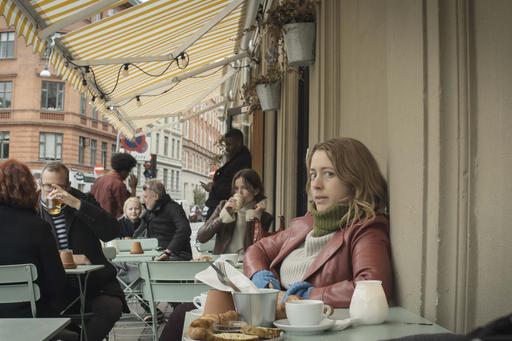
What is exchanged between strangers passing at first glance? How do people behave in front of one another when they are taken aback, when they comprehend and yet perhaps misapprehend/misinterpret? As if searching for something, the camera in Majse Vilstrup’s film Being Seen Seeing is constantly in movement, observing the ceremonial yet distinctive and intense behaviours that play out between people who may or may not be acquainted. By being repeatedly shuffled back and forth between itself and others, the camera aims to follow the view of the person behind the encounter as well as the tangle of social enigmas that follow.
City Fables (12 min) – Gabriel Gezaw
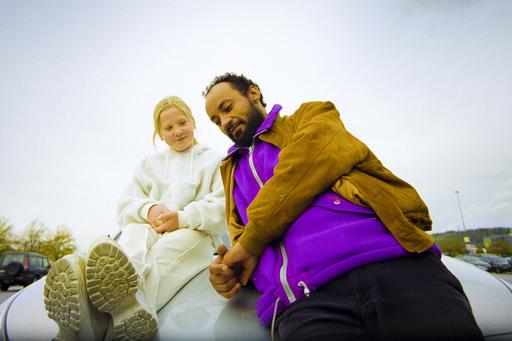
Filmmaker Gabriel Gezaw is interested in consumerism in the Swedish neoliberal society. He questions his own position in it, as a consumer, as well as how consumer desires travel over generations, or how it relates to people with different positions in society. His graduation film plays out on a parking lot outside a shopping mall and revolves around a father, a daughter, a stranger, and a huge pile of freshly bought goods.
Du som aldrig bliver min / You Who Will Never Be Mine (12 min) – Cecilie Evert Kjær
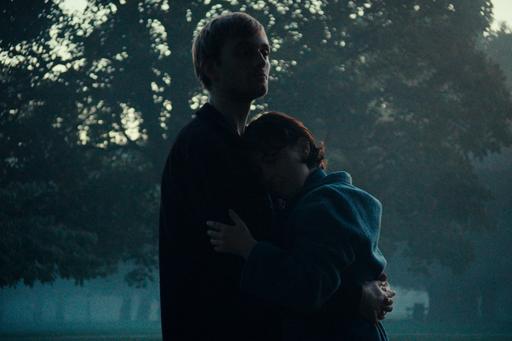
Danish filmmaker Cecilie Evert Kjær made a film about a woman, Kirsten, who married the king Christian IV of Denmark (1615). Upon their marriage Christian gave her a castle as a token of his love. In her film, a modern interpretation of this historical event, Cecilie suggests the castle to be a ‘golden cage’, in which Kirsten is trapped, while Christian is exploring the world. By doing so Cecilie questions the role that the classical love narrative plays in positioning men and women in society, back then, and in the present day.
Green Space (23 min) – Jamie Fraser
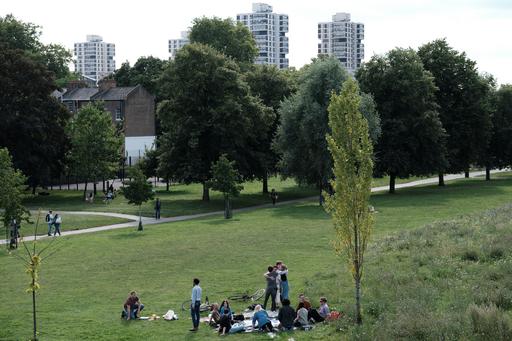
Jamie Fraser describes his film Green Space as: “An anarchic comedy about private moments becoming public maelstroms, shot in London's Burgess Park.” Shot from a single position, in what feels as a single take, little scenes of private moments unfold themselves in front of the camera. It is as if you are watching a funny, slightly awkward, but also critical Brechtian play.
The film evolved out of the filmmaker’s inquiry into public spaces on film, and what film can reveal as intrinsic, important, useful or unique about the role of public spaces in everyday life. He is interested in whether you can talk about public spaces having emotional or narrative qualities, as well as the sociological, economic or aesthetic ones that are usually analysed.
How to say goodbye (20 min) – Vangelis Kollias
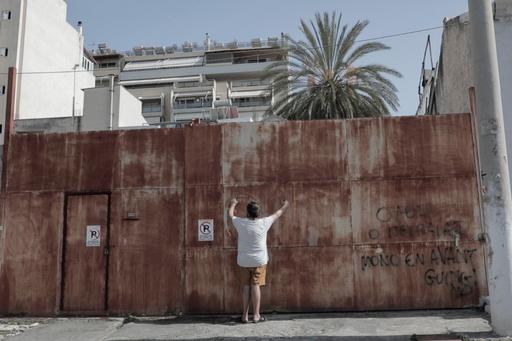
Vangelis Kollias is a filmmaker from Athens, Greece living and working in Göteborg, Sweden. Through the process of making the film How to Say Goodbye he personally explores ‘how to say goodbye’ to his old family home in Greece that will be sold, and to all the memories that are attached to it. How can the process of making a film help with dealing with feelings of loss, grief and sorrow?
He writes: “With my work I approach concepts such as memory, time, belonging and sorrow. I often use the self-performative mode as a tool to explore the cinematic questions. The result is far from the automatic association. I set questions over universal topics and I give space for people to think and feel, and finally come up with their own answers of what they have seen. My intention is not to tell a story using the rational way of thinking - but by letting others discover their own feelings and, in that way, start a dialogue. My visual approach is a mix of documentary and fiction where the limits of real and imaginary are blurred. Throughout the creative process an experiential relationship is shaped and makes fundamental the importance of being.”
I Who Will Always Be Yours (15 min) – Maximilien Acuña
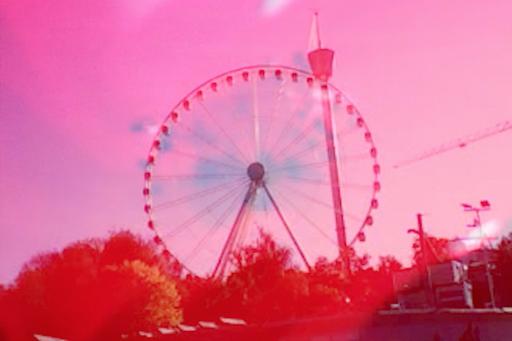
This film deals with themes such as loneliness, alienation and incommunicability versus closeness, love, and connection. During his time at the film programme Maximilien Acuña has been exploring how to create a closeness between his subjects, himself and his audience - in and through the images he puts forward. In his search for a language he created multiple short films at a very high speed. He developed a highly personal, dreamy and poetic film language, all shot with an old digital phone (yes: From the time that we still used the word ‘digital’). He himself describes his films as ‘digital diaries’. I would say: crazy beautiful and wonderfully touching nostalgic gems.
Min mammas ö / My mothers island (20 min) – Kaya Pakaslahti
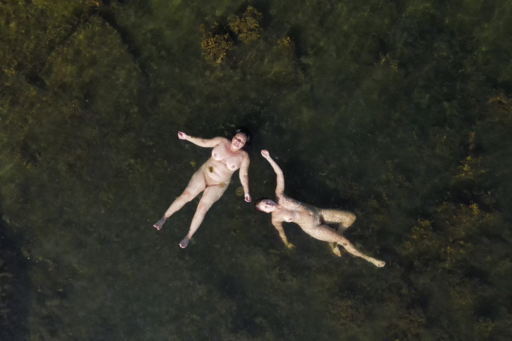
Filmmaker Kaya Pakaslahti is a Swedish speaking Fin, living in Sweden. In her film, My Mothers Island, she reflects on the traces of the colonial past of Sweden in Finland that can still be found in the present day lives of people living inbetween those countries, like herself. The settings of the film: a busy ferry between the two countries and Kaya’s mother’s beautiful Finnish island.
Neighbour (14 min) – Yaser Kassab
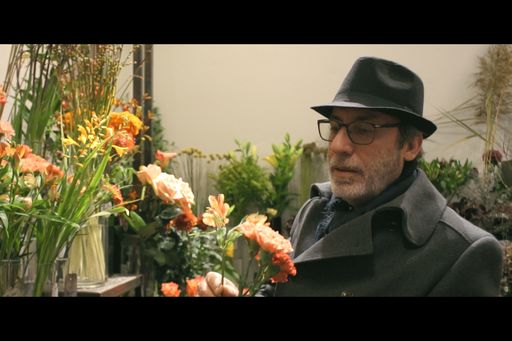
Yaser Kassab is a Syrian filmmaker based in Stockholm. His inquiry started with a feeling of unease about how immigrants and people of colour often are misrepresented in the media in Sweden. Yaser Kassab started to explore filmic approaches with which he could question, counter, subvert and criticise such representations. In his fiction film The Neighbour, a family has to deal with racist hate messages against them. How do they handle the aggression? The result: a film about love and care in a warm family setting.
The films shown on Sunday:
Act of Love (15 min) – Joel Viksten Abrahamson
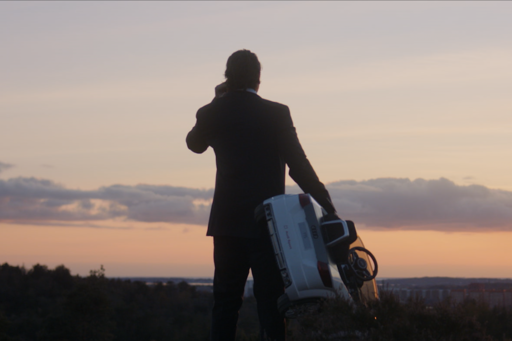
The wedding approaches. The party location is decorated, photographic opportunities are planned, the sister reads her speech to the bridegroom, and a small Audi is missing in a fragmentary and visually beautiful portrayal of the characteristics, symbols, and actions of love.
Dansa min docka / Dance my doll (15 min) – Jasmijn Kooijman
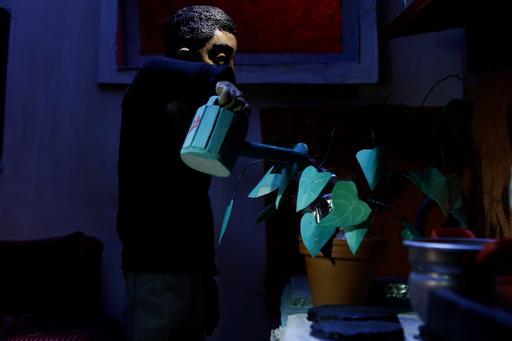
Worried asylum seekers, angry activists, and obedient case workers in an equally wonderful as sharp stop-motion film about people who are all caught in the bureaucratic claws of the migration agency.
Inifrån akvariet / Inside the aquarium – Lina Berger
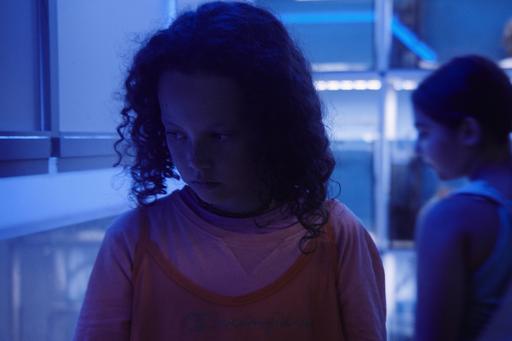
After a row out on the yard the neighbors, 10 years old Billie and Amina, become friends. They discover that they have more in common than they suspected and create an equally as playful as self-evident co-existence. But the conditions are about to change in a finely tuned and sensitively formed portrayal of friendship.
Reality check (15 min) – Simone Norberg
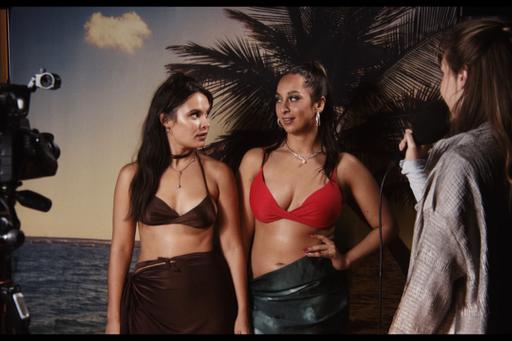
The friends Amanda and Savannah are going to take part in a reality show. Shortly before leaving for the recording location, Amanda gets an offer she can’t resist. Dreams about fame collide with remorse in Guldbagge-nominated Simone Norberg’s portrayal of a drama seeking TV world.
Systema Naturae - or, a metaphoric masturbation on man’s magic on mastering (15 min) – Sally Jacobson
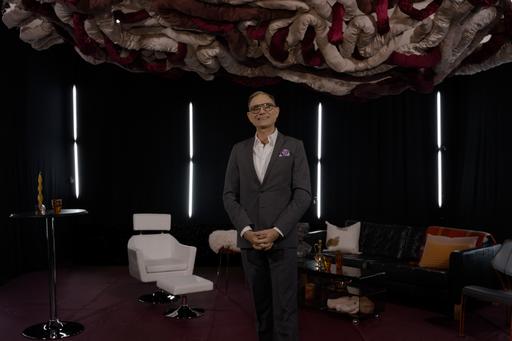
Per Berg (Peter Wahlbeck) runs a cultural magazine about life and death in this meta-story and existential exposé of humanity’s relationship to animals, where laughs quickly get stuck in your throat.
Unity of opposites (15 min) – Alfred Hedbratt
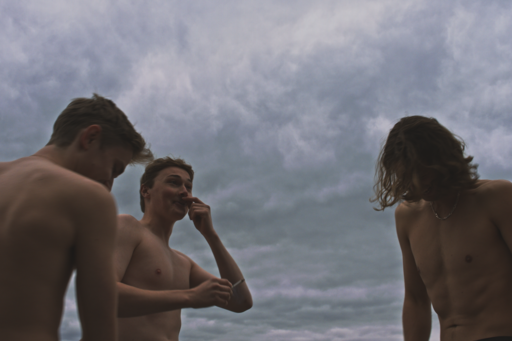
Childhood friends head out to an island to go camping, but one of them has brought along a new friend and soon tensions arise. The jokes and the jargon lead to uncomfortable situations in a humorous film about the mechanisms of group dynamics.
